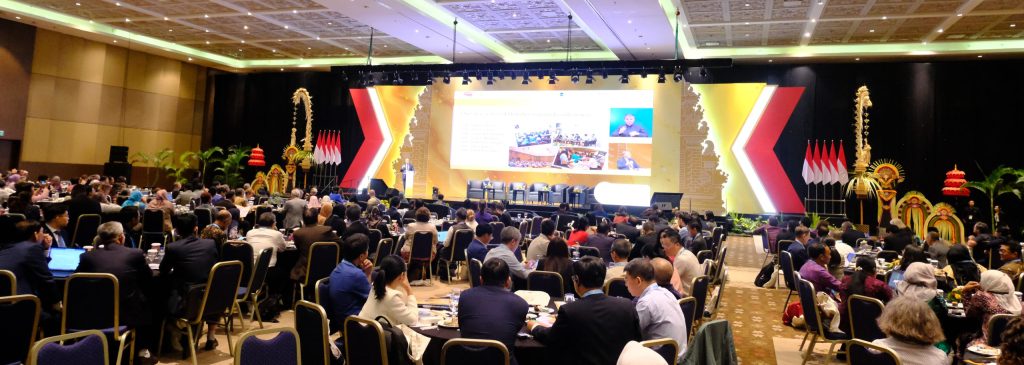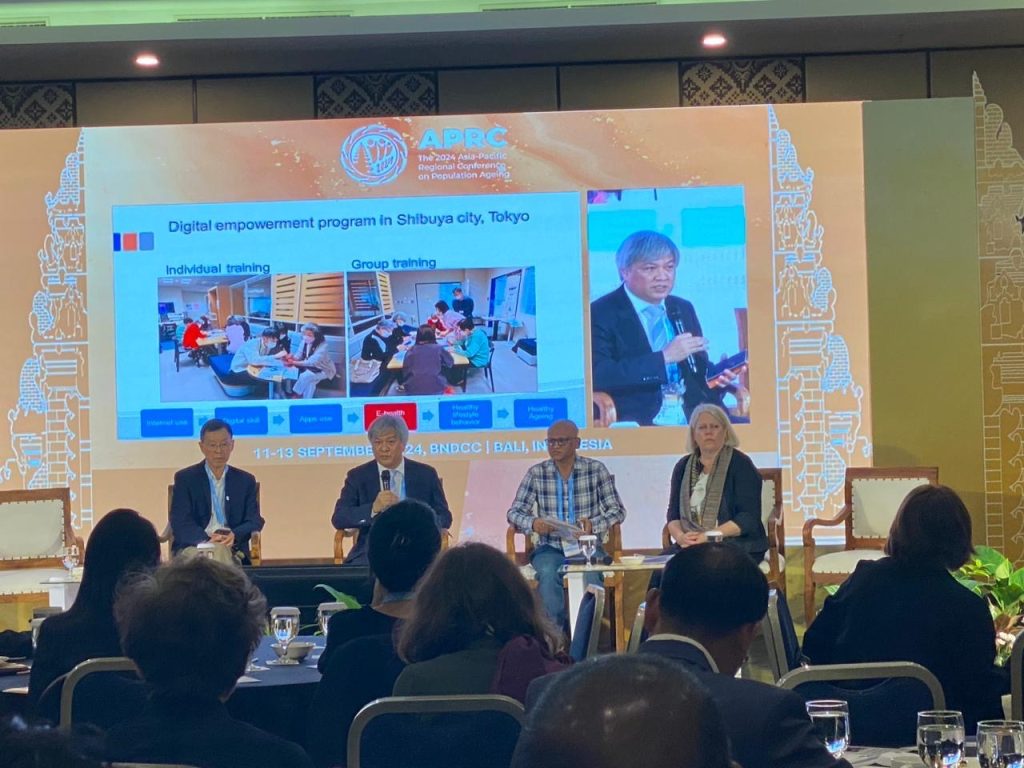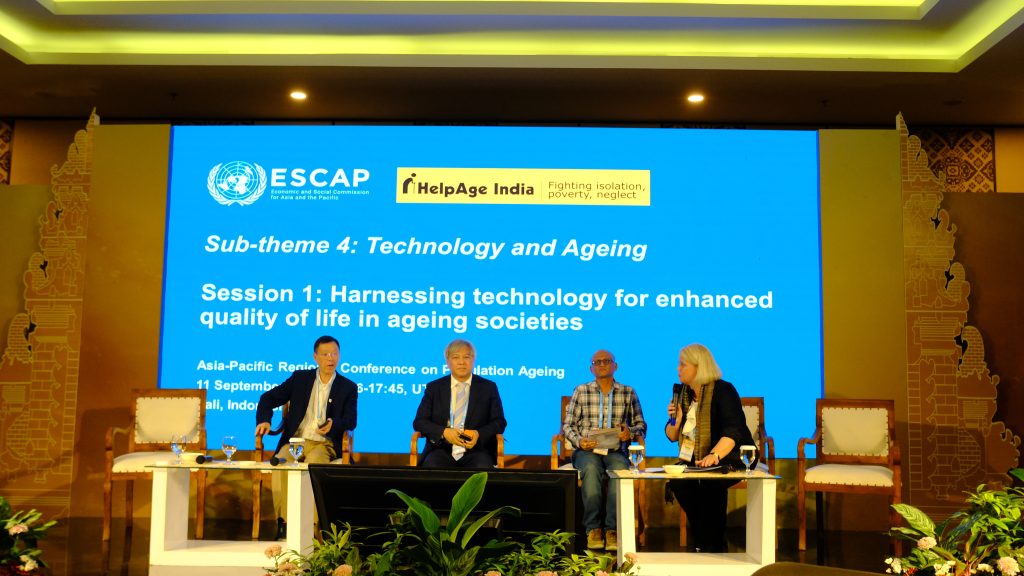UN-ESCAP invited Digitally Inclusive Healthy Ageing Communities (DIHAC) study at 2024 Asia-Pacific Regional Conference on Population Ageing, Bali Indonesia
Principal Investigator of the DIHAC study, Associate Professor Myo Nyein Aung, Department of Global Health Research, Juntendo University, was invited as an expert for United Nations Economic and Social Commission for Asia and the Pacific (ESCAP) to the “Seminar on Policies and Good Practices in Addressing Challenges and Opportunities to Population Ageing and Safeguarding the Rights of Older Persons“. The High-Level Regional Meeting was organised by UN-ESCAP on an invitation-only basis and was held at the Nest Nusa Dua Hotel, Bali, Indonesia, on 10 September 2024.
ESCAP Report of the Seminar and document to download
 Fig 1:International Conference Participants at the Asia-Pacific Regional Conference on Population Ageing (APRC) Nusa Dua Convention Centre, Bali, Indonesia, 11-13 September 2024
Fig 1:International Conference Participants at the Asia-Pacific Regional Conference on Population Ageing (APRC) Nusa Dua Convention Centre, Bali, Indonesia, 11-13 September 2024
Dr. Myo gave advice on further interventions and policies based on the findings from Digitally Inclusive Healthy Ageing Communities (DIHAC): A cross-cultural study in Japan, Republic of Korea, Singapore and Thailand. Discussions focused on how the global megatrend of advancement in digital technologies can enhance the role of older adults, ensuring that they not only take full advantage of the internet, but also contribute actively in the society.

Fig 2 Dr Myo Nyein Aung giving a panel presentation at the conference at Nusa Dua Convention Centre, Bali, Indonesia, 11 September 2024
The following day, he also contributed to a panel presentation entitled “Digital Technology and Population Ageing in Asia and the Pacific” and a discussion in the “Technology and Population Ageing” session of the Asia-Pacific Regional Conference on Population Ageing (APRC) 2024. The panel aimed to identify the intersection of the technologies and healthy ageing with solutions that improve access to services for older persons and empower social inclusion. He shared the case studies and experiences of digital empowerment programmes, evidence based on the DIHAC study findings. Discussion involved policy recommendations on macro-, meso- and micro-levels, as well as the role of intergenerational relations in enhancing digital literacy, and lifelong learning of people of all generations.
The session is hosted by UN-ESCAP, in partnership with HelpAge India. It was attended by many international stakeholders. The APRC conference was co-hosted by HelpAge International, the Ministry of National Development Planning (BAPPENAS) of Indonesia and UNFPA, and supported by HelpAge International, ESCAP and the Tsao Foundation. It was attended by delegates from 38 countries around the world. The conference was held from 11 to 13 September at the Nusa Dua Convention Centre in Bali, Indonesia.

Fig 3 Dr Myo Nyein Aung giving a panel discussion at the conference at Nusa Dua Convention Centre, Bali, Indonesia, 11 September 2024
This is the sixth time that the DIHAC study has been invited to share its findings internationally in 2024.
